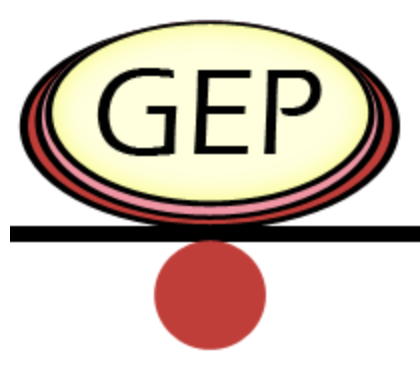MEDIA
gender tutorials
In 2002, the Gender Equity Project released a series of tutorials explaining the role gender schemas play in the science careers of men and women. In 2021, we began updating our tutorials and converting them to a video format. Our new videos break down data and research in engaging, digestible ways.
Check back with us periodically to see what we’re working on.
Tutorial #1 - Gender Schemas
This video introduces the concept of gender schemas, using data to explain the helpful and harmful roles they can play in our perception of men and women.
Appropriate for all audiences. Click the image below to play.
© 2022 Gender Equity Project, Hunter College; Narrated by Dr. Valian | Produced by Caitlin Keryc
Articles & Books
in the press
“To be viewed favorably, women candidates must somehow be feminine—warm and likable—and also masculine—competent. ”
BY MAYA GODBOLE, NOELLE MALVAR, AND VIRGINIA VALIAN
books
Rabinowitz, V., Nicols-Grinenko, A. & Valian, V. (forthcoming). Developing successful faculty: A handbook of workshops. Cambridge, MA: MIT Press.
Virginia Valian uses concepts and data from psychology, sociology, economics, and biology to explain the disparity in the professional advancement of men and women.
According to Valian, men and women alike have implicit hypotheses about gender differences—gender schemas—that create small sex differences in characteristics, behaviors, perceptions, and evaluations of men and women. Those small imbalances accumulate to advantage men and disadvantage women.
How colleges and universities can live up to their ideals of diversity, and why inclusivity and excellence go hand in hand.
Most colleges and universities embrace the ideals of diversity and inclusion, but many fall short, especially in the hiring, retention, and advancement of faculty who would more fully represent our diverse world—in particular women and people of color. In this book, Abigail Stewart and Virginia Valian argue that diversity and excellence go hand in hand and provide guidance for achieving both.
academic papers
Valian, V. (2023). Gender and evaluation. In S. E. Redfield (Ed.), Enhancing justice: Reducing bias (Ch 15). Chicago, IL: American Bar Association Publishing.
Godbole, M. A., Flores-Robles, G., Malvar, N. A., & Valian, V. V. (2022). Who do you like? Who will you vote for? Political ideology and person perception in the 2020 US presidential election. Analyses of Social Issues and Public Policy, 22, 30-65. Here.
Melnikoff, D. E. & Valian, V.V. (2019). Gender disparities in awards to neuroscience researchers. Archives of Scientific Psychology, 7(1), 4-11. Here.
Greider, C. W., Sheltzer, J. M., Cantalupo, N. C., Copeland, W. B., Dasgupta, N. Hopkins, N., Jansen, J. M., Joshua-Tor, L., McDowell, G. S., Metcalf, J. L., McLaughlin, BA., Olivarius, A., O’Shea, E. K., Raymond, J. L., Ruebain, D., Steitz, J. A., Stillman, B., Tilghman, S. M., Valian, V., Villa-Komaroff, L., & Wong, J. L. (2019). Increasing gender diversity in the biomedical research workforce. Science, 366(6466), 692-695. Here.
Valian, V. (2019). We are all complicit in harassment and abuse. (World View, A personal take on events). Nature, 574(7776), 7. Here.
Godbole, M., Malvar, N., & Valian, V. (2019). Gender, Modern Sexism, and the 2016 election. Politics, Groups, and Identities, 7, 700-712. Here.
Valian, V. (2018). Two Nobels for women – why so slow? (World View, A personal take on events). Nature, 562, 165. Here.
Madera, J. M., Hebl, M. R., Dial, H., Martin, R., & Valian, V. (2018). Raising doubt in letters of recommendation for academia: Gender differences and their impact. Journal of Business and Psychology, 1-17. Here.
Nittrouer, C. L., Hebl, M. R., Ashburn-Nardo, L., Trump-Steele, R. C., Lane, D. M., & Valian, V. (2018). Gender disparities in colloquium speakers at top universities. Proceedings of the National Academy of Sciences, 115(1), 104-108. Here.
Valian, V. (2014). Interests, gender, and science. Perspectives on Psychological Science, 9(2), 225-230. Here.
Talks
Click the images below to play videos of the talks.







